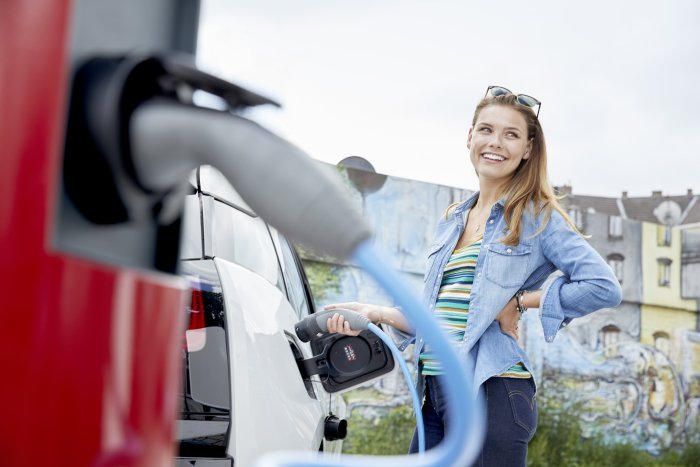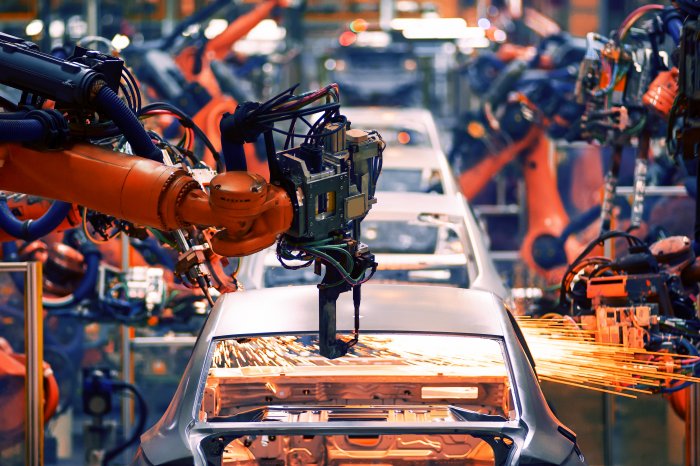The One-way Street of Continuous Self-Reinvention
Minister of Foreign Affairs and Trade Péter Szijjártó, addresses the recent Hipa Automotive Conference.
As automotive whooshes semi-silently toward an electric future, stakeholders must keep pace with constantly changing market conditions and regulations. A roundup by the Hungarian Investment Promotion Agency reveals how investors adjust their strategies to these circumstances and what awaits suppliers down the road.
Nowadays, automotive stakeholders are not in an enviable position. The chip shortage may no longer make headlines, and the worst days of the energy crisis are perhaps over. However, day-to-day operations are still shaped by the trinity of sustainability, profitability, and competitiveness, aspects that are far from easy to reconcile.
Yet, things look rosy in Hungary. The sector’s production value has soared by a factor of 3.5 in the past decade, passing the HUF 10 trillion mark for the first time last year. In fact, the 2022 figures represent a record HUF 12.2 tln, equivalent to a 30% year-on-year growth. Competitiveness benchmarks are also positive; 90% of domestic production was exported to 173 countries.
Meanwhile, foreign direct investment has seen exceptional activity too. The construction of BMW’s state-of-the-art iFactory in Debrecen is underway, and Mercedes-Benz’ EUR 1 billion development continues apace, to name but two of the largest-scale projects by original equipment manufacturers in Hungary.
The transition to electrification is what primarily drives current automotive investments, as OEMs are gearing up for a change made inevitable by evolving regulation. They are not only ramping up in-house capacities and competencies but also striving to persuade suppliers to set up shop in close proximity.
Take the aforementioned BMW and Mercedes-Benz. Both have announced they will set up their own battery assembly plants; Mercedes will purchase batteries from CATL’s gigafactory to be built in Debrecen, whereas BMW plans to rely on EVE Power’s EUR 1 bln battery plant scheduled to be up and running literally next door in 2026.
More investor news from earlier this year provides further evidence that the industry is in e-mode: The German Boysen Group, traditionally better known as a specialist in exhaust technology, announced it would set up a battery casings plant for EUR 150 million, Korea’s EcoPro BM has broken ground on a EUR 728 mln cathode material factory, and Sang-A Frontec, also from Korea, will invest EUR 25 mln to make plastic battery parts.
Record Breaker
Hipa closed 51 deals between 2016 and Q1 2023 in the e-batteries field worth some EUR 10 bln and creating 15,000 new jobs. This doesn’t even include CATL’s above-mentioned gigafactory, a EUR 7.3 bln project, which is an absolute record in the history of Hungarian investment promotion to date.
As Minister of Foreign Affairs and Trade Péter Szijjártó said at the 2023 Hipa Automotive Conference, being the meeting point of East and West is what makes Hungary essential as the success of the European economy depends to a large extent on how fast and well European automotive can handle the transition.
Hungary’s government is ready to give a helping hand to stakeholders that invest here. Renewable energy-related investments and energy efficiency developments are eligible for government subsidies that cover up to 50% of costs. Another tool included in the Hungarian investment promotion regime is that investments of up to EUR 350 mln will be exempt from European Commission approval if they are designed to cut carbon emissions and certain further terms are met in line with the new initiative.
Automotive players can surely use such supportive measures, as the transition away from fossil fuels puts an immense burden on them. Whopping energy bills, galloping wages, and the aftermath of the chip shortage make their lives hard enough. What really tests their ability to adapt, though, is how they go from an internal combustion engine (ICE)-based business strategy to electric powertrains at such short notice.
Japanese-owned Denso feels that pressure too. The company has been present in Hungary since 1997 and specializes, among other things, in manufacturing power transmission, electronics and safety systems. As Attila Szincsák, vice president of Denso Manufacturing Hungary Kft., explains, the next 5-10 years will be most critical when it comes to planning. One of the issues that is triggered by the transition is capacity.
“OEMs don’t want us to stop producing items for ICEs, and whenever we would like to do so, they get into panic mode and sign long-term contracts thru 2030 or later to ensure capacity,” he notes. This, in turn, prevents suppliers like Denso from freeing up resources for electrification-bound activities.
Capacity Challenges
Another problem is that, although there is still time until the 2035 ban on new ICE engines, it’s impossible to find partners for ICE-bound investments on any scale in Europe. But since you can’t increase capacities without those investments, EU-based firms are missing out on business opportunities as volumes can’t be maintained.
Szincsák was pleased by a last-minute exception that has left the door open for selling vehicles running on e-fuels after 2035, as he says there are some excellent alternative solutions out there. Their development shouldn’t be brought to a halt just because of the EV revolution, he argues.
He voices further concerns regarding the high speed of transition and the lack of related impact assessments.
“Manufacturing becomes more simple when it comes to EVs, and as a result, seven out of ten suppliers will disappear,” he explains. “ICE suppliers are in grave danger if they don’t start preparing for the transition together with OEMs.”
In fact, in Germany, local suppliers are in trouble in growing numbers partly because they were late to realize what was coming and partly because Eastern newcomers are highly competitive. As OEMs want to keep many tasks in-house to retain their workforce, this makes the situation of the players of the value chain even more difficult.
“Who said that ICE is the bad boy? It is – and will be – very much needed in areas where an e-battery is not an option,” Szincsák adds. He notes that Hipa’s support is crucial in the process of gearing up for transition. In fact, Denso will unveil a new Hipa-guided investment in a few weeks that will help Denso take a crucial step in prevailing in an electric-only automotive future.
This article was first published in the Budapest Business Journal print issue of May 19, 2023.
SUPPORT THE BUDAPEST BUSINESS JOURNAL
Producing journalism that is worthy of the name is a costly business. For 27 years, the publishers, editors and reporters of the Budapest Business Journal have striven to bring you business news that works, information that you can trust, that is factual, accurate and presented without fear or favor.
Newspaper organizations across the globe have struggled to find a business model that allows them to continue to excel, without compromising their ability to perform. Most recently, some have experimented with the idea of involving their most important stakeholders, their readers.
We would like to offer that same opportunity to our readers. We would like to invite you to help us deliver the quality business journalism you require. Hit our Support the BBJ button and you can choose the how much and how often you send us your contributions.








